If I had to use only one word to describe Circuit Court Judge Deborah Thomas, it would be “fearless”. Judge Thomas, one of three people nominated by the Michigan Democratic Party for the Michigan Supreme Court (on the non-partisan section of the ballot), has never let adversity stand in the way of achieving her goals. Despite losing her father at the age of ten and contracting polio as a toddler, she has been a fierce warrior for the communities where she has served.
When Judge Thomas speaks about her candidacy, she uses the phrase “Vote Justice First”. The phrase has two meanings. First, it’s a pragmatic call for people to turn over their ballot and vote for the non-partisan races -primarily judicial races – first so they aren’t forgotten. But it’s also a call to hold justice in your head and in your heart when you vote. In other words, choose candidates who will further the cause of justice in our state so that all of our residents can enjoy the opportunities available to Michiganders.
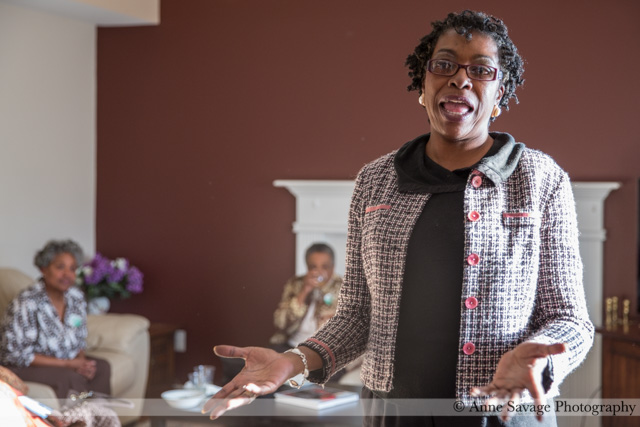
I sat down with Judge Thomas last weekend while she was in Ann Arbor for a fundraiser. After we talked, I came away more impressed than ever. You can learn more about her campaign at her website JudgeDeborahThomasForJustice.com.
Oh, I mentioned her fearlessness. That fearlessness doesn’t just pertain to her community service, overcoming adversity, or social justice work. She’s also fearless enough to be a hydroplane pilot. Read through the interview and then enjoy a video of her in action behind the wheel of hydroplane. It’s something to see!
Here’s our interview.
Talk about your history a little bit, what you’ve done up until now. I know that you’re a judge now. What led you to the point where you decided to run for Supreme Court Justice. Again.
Again. Like I should have learned the first time! Well, I wasn’t planing on running. I didn’t wake up one morning thinking, “I’m going to run for the Supreme Court.”
I was born and reared in Detroit, one of three girls, I’m the middle girl. My dad worked for the post office, he drove a truck for the post office. He became ill when I was about 7 or 8 years old. It was cancer. My parents talked and then my mom went back to school and she became a licensed practical nurse. My dad passed away by the time I was 10.
I contracted polio, I don’t know if you knew that.
I didn’t. I knew you were involved with issues of disability but I didn’t know specifically why.
I contracted polio when I was three. I can remember to this day spending a lot of time at the Detroit Children’s Hospital. I remember asking my father, “Am I going to be able to walk again one day?” And he said, “One day you’re going to be able to dance!” Nothing else needed to be said. He was very involved and very supportive at that time. And I love to dance. I’m not going to say I’m great at it but I love it and maybe it’s because of all of the memories.
I was educated in Detroit Public Schools. I went to White Orthopedic for awhile and then graduated from Cass Tech in clothing and textiles. I wanted to be an interior decorator and I went to Western Michigan University. But, my mom told me, and she had never said anything like that before, I was devastated, she told that “little black girls don’t grow up to be decorators” and that I better get an education so that I could get a job. She had never told me ever in my life that there was something that I couldn’t do and I was totally taken aback.
How old were you then?
I was like 17.
And ready to take on the world…
Right? And I was like, “What? Have you seen Dr. King???!”
I ended up in education, in Sociology and came back to Detroit to start teaching after completing college at Western in three years. I was getting financial aid and I was thinking, well, this isn’t going to last very long. I want to get this while the getting’s good. I was accustomed to going to school from September to June. So, I thought, well, this college thing is cool, but if I keep going from September to August, I can get out of here faster.
I tried to get a teaching job but there were no contracts. There were more teachers than there were positions. So my mom showed up again – it was easy because I was living at her house! – and she said, “Education. Job. Didn’t we have this conversation?”
So, I went back to school and started working on a Masters in Criminal Justice and Family Counseling. During that time, a friend of mine from Western came over to my house one day. We had talked about going to law school while we were going through school and his brother had been accepted at Valparaiso a year before. The two of them showed up at my door and said, “Here, fill this out.” I’m like, okay, fellas. Why am I filling this out? and they said, “We’re all going to law school.” We had talked about it so I was good so I said fine. They left out the door with the application and the next semester I was at Valparaiso.
It sounds to me like you had this social justice streak running through you from a long way back.
From day one. From day one, yes. At Western I was on the student leadership council this and the dorm council that. At Valparaiso, I ran and was elected the national vice president of the Black American Law Students Association. I drafted the rules and regulations for the moot court, they had the Fredrick Douglass moot court competition.
Those are to prepare people for actual court situations, correct?
Yes, exactly. I was working on my Masters degree while I was in law school and I did my thesis of my Masters on affirmative action in law schools. In fact, when the lawsuit against affirmative action was filed in Michigan, I forwarded my thesis to some friends of mine who were attorneys with the NAACP who were working on it. And they actually found it very helpful.
Was affirmative action ended too soon?
I think so.
There’s not parity yet.
Not by any means. I think we’re going backwards, actually. We’re actually sliding back. All of the kids I went to school were first generation college students. Every last one. All of the African American students, we were all first generation. We were able to go back to our respective communities and take what we had learned. We were part of a smaller group at Valparaiso University and it was kind of like part of their mission statement. They were preparing us knowing that we would go back to our communities and do service in our communities. We had a lot of students from New York, Michigan, Illinois, and Indiana.
Were there people there from Michigan that you knew from before?
The two that came to the door and got me into law school! But, yes, we had a network of friends. One of them had attended Michigan State so he had recruited a couple of other students from Michigan. His brother and I were both students at Western and we recruited some other students from Western as the years went on.
Do you still stay in touch?
Oh, yes.
I know what’s it like with the guys that I went to college with, we made long term friendships. I can imagine being in a crucible like that that you would have formed strong bonds.
You’re so dependent on each other and we have definitely remained in contact.
My first job, I had two options. I could have gone with Rockwell International out in California and done the cubicle bit with everyone aiming for the outer wall and then the corner office…
I’m gonna guess you didn’t choose that option.
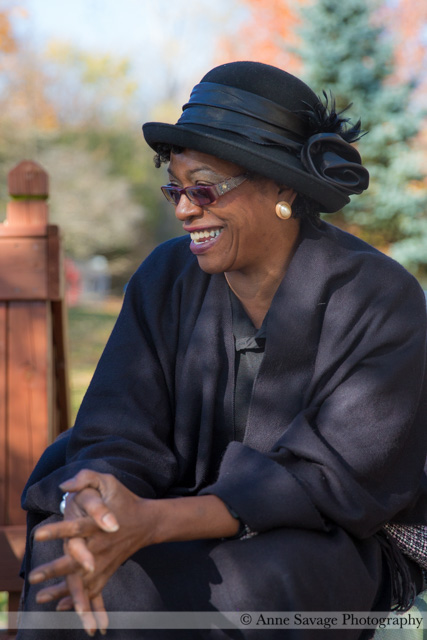 [laughs] No, no I didn’t. It was in L.A. It was my first time in L.A. and I was like, “Oh. Sodom and Gomorrah. I’ve heard of this.”
[laughs] No, no I didn’t. It was in L.A. It was my first time in L.A. and I was like, “Oh. Sodom and Gomorrah. I’ve heard of this.”
I also got an offer to be a national fellow for a program called the Reginald Heber Smith Community Lawyer Fellowship Program. It was sponsored by the Howard University School of Law. Every year they would take three hundred to three hundred and fifty lawyers and place them around the country in places where there were shortages of attorneys but there’s was a need for the service. So we were assigned to the Appalachia area, the deep South, urban centers. It was kind of like the Peace Corps at home. Our assignment was to go into the community, meet the community leaders, not necessarily the elected officials, but the community leaders, find out what the community needed and how we could assist.
I was assigned to Oakland County in Pontiac. At that time, Oakland University was expanding and they were unearthing artifacts from the native American community. We worked to resolve the disputes regarding what they were going to do with these artifacts and just how gentle they were going to be.
I did my first forum there on Legal Rights and Responsibilities of Youth. I actually filled the auditorium up on Telegraph Road where the Commissioners meet. I stayed there almost two and a half years then I went to work for the UAW legal services plant. They were just establishing that program that was designed to provide legal services for UAW members, providing legal services for blue collar workers. While I was working there, the bottom fell out of the housing market and I was assigned to the bankruptcy unit trying to help a lot of those folks keep their homes.
Then I got a chance to work for the Michigan Employment Security Commission (MESC) and worked for the Appeals and Interpretive Standards division. We were kind of like in-house council for the Commission. It was our job to interpret the statutes and to give meaning to the various rules and regulations. We would represent the Commission itself at different meetings. My job, ultimately, I was responsible for the interpretation and application of the Trade Retraining Act. There were a lot of folks, especially at Chrysler, who were losing their jobs and needing retraining benefits and I was the one to decide if the Act would be applied broadly or narrowly.
I imagine that there were some that wanted it to be applied more narrowly so that they didn’t have to pay the benefits.
That is correct. I stayed there for some time and then I worked for SEMTA, the South East Michigan Transportation Authority as in-house council. That was during the time that they were building the People Mover. I am an advocate of public transportation for two reasons. One being independence, especially for the disabilities community. You don’t have to sit and wait for someone to find time to take you where you need to go. And also the environment. It’s good for the environment.
I worked there for a couple of years and then went into private practice. With the brother who came to my house with the application for law school, in fact!
Well, it came full circle, didn’t it?!
Yes! We started a law firm. I did that for a number of years and, being a woman lawyer, sole practitioner, you’d be amazed at how people think they don’t have to pay you. I even had one client tell me, “You have a husband. You don’t need the money.”
At that point I was starting to have some issues with the polio, too. By that time, conversations were starting about post-polio syndrome.
So, you had gone a long period of time without an issue and then started having problems?
Without an issue, yes, but then it was starting to come back and I knew that I needed to get to a place where I would go to same location every day. At the same time, John Engler was Governor and this is when we had Recorders Court and we had the Wayne County Circuit Court. Although Detroit residents had to go to the Circuit Court for general, civil, and family matters, all of the criminal matters were in the Recorders Court. I liked the diversity of the docket, I don’t like doing the same thing every day. Well, there were always maybe three African American judges in the Circuit Court. I’d go over there and I’d represent my client and the judge would say something in five, six syllable words and my client would look at me and say, “What’d he say?” And I’d interpret it for him and my client would give a response and the judge would look at me and say, “What’d he say?”
As our judges were retiring or dying or being promoted, Engler was not replacing them. He was not appointing African Americans to those positions. So, I started talking to some of the older black attorneys and I said, “Somebody needs to run for judge.” We have to go through the court. We need somebody who is there who is sensitive to our community. We’re paying taxes, how about some representation here?
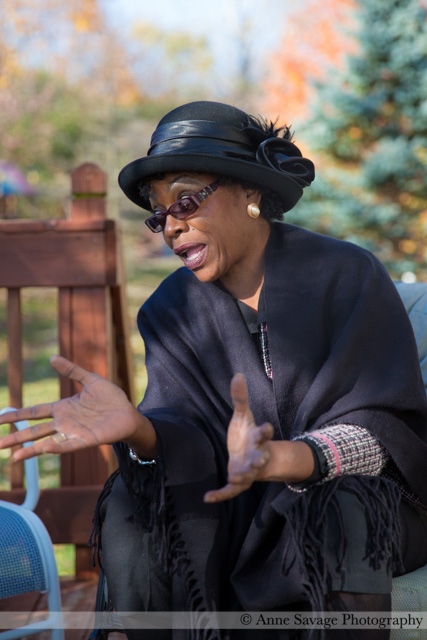 I was kind of naive. I didn’t understand why none of them would do it and, as I looked back, I realized that by this time, these guys have got practices. There was another attorney that I talked to, Willa Mae King, well-respected in Detroit, and I was trying to get her to run. And she says to me, “Well, if you think it’s such a good idea, why don’t YOU run?” And being young and gung ho, I said, “Well, I WILL then!”
I was kind of naive. I didn’t understand why none of them would do it and, as I looked back, I realized that by this time, these guys have got practices. There was another attorney that I talked to, Willa Mae King, well-respected in Detroit, and I was trying to get her to run. And she says to me, “Well, if you think it’s such a good idea, why don’t YOU run?” And being young and gung ho, I said, “Well, I WILL then!”
I had been active. I was on the State Central Committee, I had been working with the Party, I had actually run for Detroit City Council at one point. So I pulled the numbers and I realized, you know, a black person could win in Wayne County, honestly they could. The first time I ran for Circuit Court, there were three vacant seats and in the primary they were taking the top six. But I couldn’t get my community to support me. Their stance was, “We want to support the candidate that’s going to win.”
I ran anyway, I went all over the county, and I came in seventh. Then they came back to me and said, “If we’d have helped you a little bit, you would have won.” You can imagine what MY response was!
Two years later, in 1993, it was the next term and I ran again. I was running a poor man’s campaign so I had to build on what I had already started. This time I ran against the incumbent, something that had only been done once before about 50 years before. I was trying to instill in my community that, if we pull together and work, we can be successful. We don’t have to settle for the person who everyone thinks is going to win. Let’s create change.
So, they got behind me and I won.
You beat an incumbent?
I did. And I was a happy camper. I was doing community projects. I am a member of the Elks organization and there was an issue with domestic violence that caught my attention. As a state officer, I galvanized our members and we lobbied for and got the state toll-free domestic violence hotline.
But, I have always been community involved and I worked on all sorts of projects like that. Working with children, feeding people…
You sound like you don’t stop very often.
That’s what my children say!
So you’ve been on the Circuit court for twenty years? You’ve run for Supreme Court before, correct?
I did. That was ten years. There was an issue, again, that I was going to speak out on this issue. So, I ran for Supreme Court at the state convention and had an opportunity to speak out on that issue. And people wanted to know, “Who is this woman?”
What was the issue?
Lack of representation.
Of African Americans?
Yup. And women.
And how did the Michigan Democratic Party respond to that?
“Who is that woman?! Where does she come from?! Who opened that door and let HER in?!”
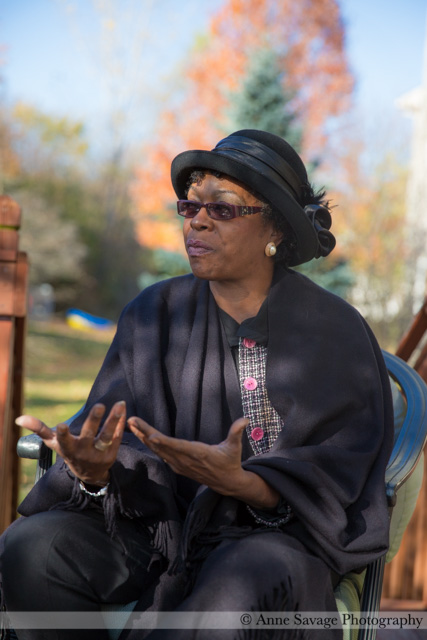 Then, a couple of years later, I ended back at the convention again. I only went to two districts, they were both in Detroit. And I gave this speech and it was about “black baby dolls are pretty baby dolls, too”. I talked about the study that was done in the 50s and how black little girls, when they were asked which doll was the pretty doll, kept picking the white baby doll. And I gave this speech that asked why is it that every time we were going to support a candidate, even a woman candidate, for the Michigan Supreme Court, we wouldn’t support a black woman who had at least as much training and experience as a white woman. I wasn’t mad at the white woman, it’s just that, for crying out loud, black baby dolls are pretty baby dolls, too.
Then, a couple of years later, I ended back at the convention again. I only went to two districts, they were both in Detroit. And I gave this speech and it was about “black baby dolls are pretty baby dolls, too”. I talked about the study that was done in the 50s and how black little girls, when they were asked which doll was the pretty doll, kept picking the white baby doll. And I gave this speech that asked why is it that every time we were going to support a candidate, even a woman candidate, for the Michigan Supreme Court, we wouldn’t support a black woman who had at least as much training and experience as a white woman. I wasn’t mad at the white woman, it’s just that, for crying out loud, black baby dolls are pretty baby dolls, too.
The year that Maggie Drake ran, I did a floor fight that year. I really wasn’t going to do the floor fight because by this time I was on the bench and I did campaigns around the state and I was feeling it. That polio thing was giving me the blues. I had campaigned for the nomination but I knew that I didn’t really have it to do the floor fight. So, when I got to the convention, and this was the year that John Austin was going to run for Secretary of State, the party had already decided what they were going to do. At the convention they used their influence to have all of these other candidates to step aside at the convention. I was like the last person standing.
Well, the 1st District came to me and they said, “We’re sick and tired of driving all this way to the convention and then everything is already decided when we get here. Why did we leave home? We could have just stayed in Marquette.” And they asked me not to pull out of the race, that they would support me for a floor fight, and that it needed to be done because it was a step towards democracy.
Go, 1st District! That was Bart Stupak’s district, right?
Yeah, it was Stupak’s district. It sure was. I told them that I agreed with them and that I would do it. If you’ll stand, I’ll stand. So, there were negotiations going back and forth right up until the vote and I finally told them that I’d agree to do a voice vote if Maggie Drake agreed to do a voice vote. That was the compromise way out. So, we did the voice vote – that everybody swears I won – but I conceded and she ran that year.
Two years later I’m at the National Elks Convention down in Atlanta minding my own business, the telephone rings and it’s the Democratic Party saying, “We want you to run for Supreme Court.” I’m like, what? I was still naive. I thought that they would support me, my health was good, and off I went. There were four of us running the campaign, I had a ’99 Ford Explorer which we about killed and we went around the state and had a great time. I think I raised something like $23,000, ten of it was mine. And I lost.
The hardest part of that experience was the backlash from the campaign. It hurt that the Democrats didn’t really get behind me…
Since they had recruited you in the first place…
In the first place, you know. But the filing of grievances [by Republicans], efforts to destroy your reputation…
You’re talking about during the campaign?
And after. And after. Because they want to make sure you don’t come back again.
No shit. It’s that bad.
Who knew? But I wasn’t prepared for that. But they did one against Bridget McCormack. I hear they’ve done one against Richard Bernstein.
So, you’ve been at this two or three times now?
As a candidate twice. But, for me, it has been a platform to speak about issues that need attention.
Why are you back at it this year?
Somebody took a phone message and it had some name on it, sounded like some community group. And the person that had referred this community group to me was someone I thought well of and I figured she was making a referral because these people wanted a speaker for a dinner or something. So, I answered the phone call. It turns out it was the Trial Lawyers Association but now they’re called the Michigan Association for Justice. I thought this was some social justice group that was standing up for some cause or another. And I said no and I said no and I said no. Finally, to just get him off the phone, I said, “Sure, you can exploit my name and my image.” Literally. And he took it for a yes! I’m like haven’t you ever heard of sarcasm?!
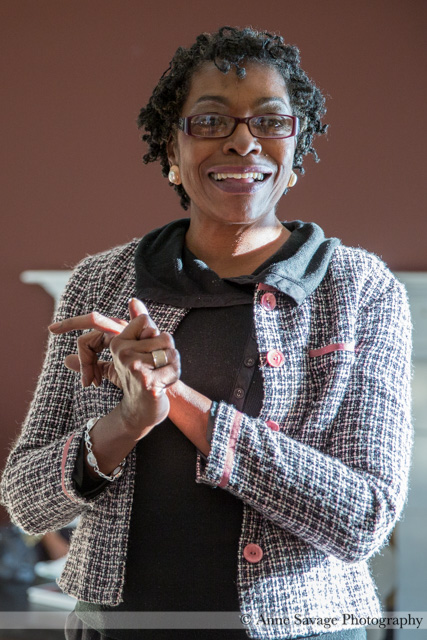 The next day I made a phone call and said, wait a minute, hold up, hold up. But, what really convinced me is that I have been giving community education forums forever, really. On expunging your state criminal convictions as the primary topic. And every year I add a second topic. Friend of the Court issues. Driver responsibility issues. I have been giving them in Wayne County and I have maintained relationships with people who I met when I ran when Marilyn Kelly ran. I had given them in Battle Creek and I had given them in Muskegon, Grand Rapids, every other year so. So, it was kind of like this would give me an avenue to go to other parts of the state and give the forums.
The next day I made a phone call and said, wait a minute, hold up, hold up. But, what really convinced me is that I have been giving community education forums forever, really. On expunging your state criminal convictions as the primary topic. And every year I add a second topic. Friend of the Court issues. Driver responsibility issues. I have been giving them in Wayne County and I have maintained relationships with people who I met when I ran when Marilyn Kelly ran. I had given them in Battle Creek and I had given them in Muskegon, Grand Rapids, every other year so. So, it was kind of like this would give me an avenue to go to other parts of the state and give the forums.
At the same time, there other representations made to me that various individuals and groups were going to give money towards this campaign. Now, it was a far cry from a million dollars. But, being raised by a single parent, I know how to squeeze a dollar. I figured if I could do it with $25,000, well it was at least five times that that they were talking about. We can have a campaign with that kind of money.
So, with the two in mind, I said, “Okay, I’ll give it a try.”
Well, the money didn’t come. I did get to do the forums and I really love doing the forums. It’s the teacher in me. It’s community service, it’s going into the community and finding out where there’s a community need and serving that need, something that I love. I have been doing the same thing from my first legal job to this legal job. It’s actually been the same routine: going into the community, finding out what their needs are, and seeing what you can do help them out.
This whole thing of them saying that they would support and then they haven’t done that seems like something you’ve gotten way too used to or at least that you’ve come to expect.
Yes. I was disappointed but not surprised.
I understand the Richard Bernstein and William Murphy, the other two Democratic Party-nominated candidates, are basically running together and they haven’t included you in that. That’s quite a bit different than the last cycle when all three candidates pretty much ran a campaign together.
Yes, last time they were really working as a team. If we get all three of us elected, then we have the majority and we can change some things. My hope was that we were going to run as a team. As it turns out, those who, because of their stature in life, have more, use more. And it’s not uncommon that those who have more don’t share very freely. I thought that we all understood the issues involved and I thought the mission was important to all of us. But I think the mission got lost.
So, let’s end on a positive note. A big turnout could make a big difference for you.
I could actually still win this thing!
And you have been very active in the southeastern Michigan area. So, do you see the work that’s being done to get out the vote down there as critical to what’s going to happen for you?
We’ve had phenomenal effort, not only in Detroit, but in Flint, in Battle Creek, in Muskegon, Ypsilanti, Ann Arbor. This has certainly been an old-fashioned, poor man’s campaign. We have given expungement forums where we have had 250, 350 people show up. We’ve had such large crowds that we’ve had the fire marshals close the door, nobody else can come in, you gotta come back another day. We have serviced the community. Some of those people are going to support our campaign. If the people we’ve helped reach back to help, and those who appreciate us going into the community, finding the legal need and servicing that need help, we can actually win this. We can actually win this.
It’s more impressive for a voter when they shake a candidates hand than when a candidate waves at them from the television. So, yeah, I still think we have a fighting chance. I still think we can win this thing.
Now, as promised, here’s Judge Thomas tearing it up in a hydroplane:
[All photos by Anne C. Savage, special to Eclectablog]



